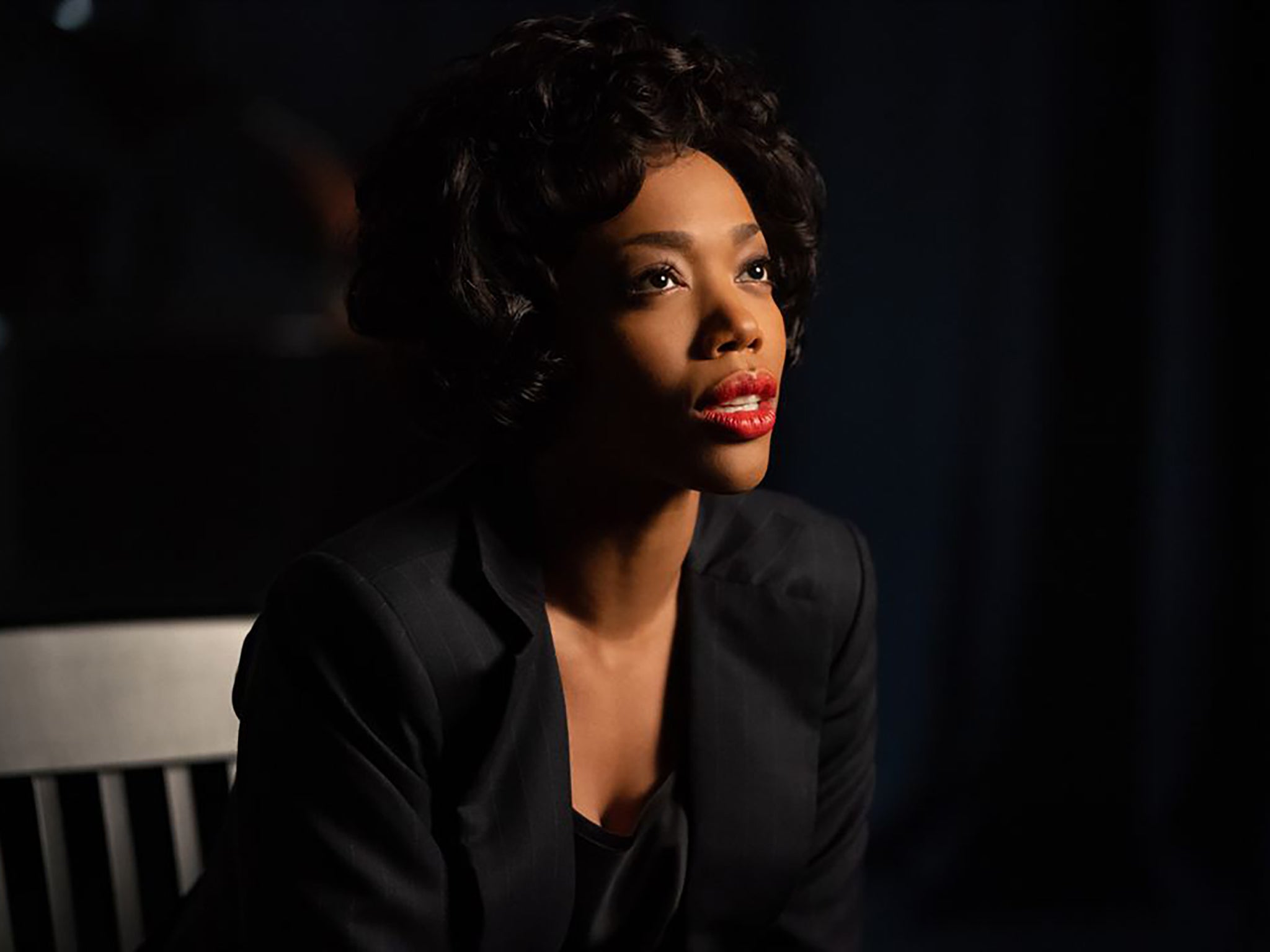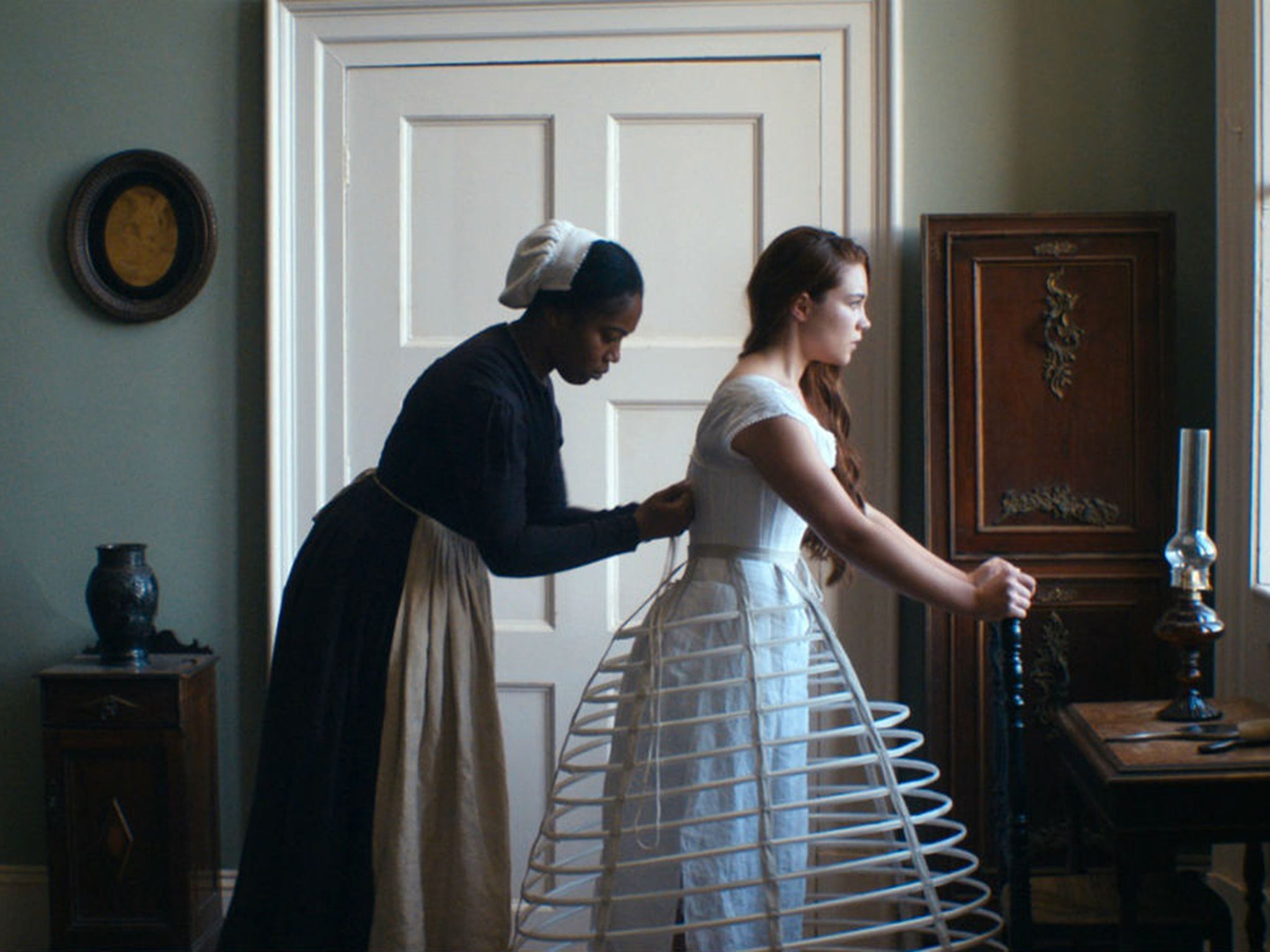Naomi Ackie on playing Whitney Houston: ‘I know I’m potentially putting myself in the firing line’
The east Londoner talks to Adam White about transforming into the American diva for the biopic ‘I Wanna Dance with Somebody’, how addiction doesn’t change the singer’s legacy, and why the aftermath of a Florence Pugh movie nearly led her to quit acting

![‘I love being in front of the camera and telling stories, but [fame] feels alien to me. I can already see my life changing’](https://static.the-independent.com/2024/01/31/21/010_1448237972.jpg)
Your support helps us to tell the story
From reproductive rights to climate change to Big Tech, The Independent is on the ground when the story is developing. Whether it's investigating the financials of Elon Musk's pro-Trump PAC or producing our latest documentary, 'The A Word', which shines a light on the American women fighting for reproductive rights, we know how important it is to parse out the facts from the messaging.
At such a critical moment in US history, we need reporters on the ground. Your donation allows us to keep sending journalists to speak to both sides of the story.
The Independent is trusted by Americans across the entire political spectrum. And unlike many other quality news outlets, we choose not to lock Americans out of our reporting and analysis with paywalls. We believe quality journalism should be available to everyone, paid for by those who can afford it.
Your support makes all the difference.Is this really unprofessional?” Naomi Ackie has made a beeline for the wine. But wouldn’t you need a drink if everyone was about to see you play Whitney Houston? Ackie has been nearly famous for a few years now, a British actor best known for playing a resistance warrior in Star Wars: The Rise of Skywalker, then Lena Waithe’s uncertain wife in the Master of None spin-off Moments in Love. Today, though, she’s plastered on the wall of every Tube station I pass en route to meeting her. “I’m so sorry about that,” she winces, as we pour two glasses of emergency rosé. Ackie used to pray for the day when her name and face would be on a movie poster. But now, with her phone inundated with texts from friends and family about the ads for I Wanna Dance with Somebody – tagline: “Naomi Ackie is Whitney Houston” – she’s having second thoughts. “It’s amazing, but also really embarrassing...”
Ackie isn’t so much a reluctant star as a practical one. When we meet at a London hotel in the middle of a whirlwind week of press, the public – and the critics – are yet to see her Whitney biopic. It means the film’s reception is largely abstract at this point, like an iceberg Ackie could either hit or swim around safely. She’s trying not to let it get to her. “The reality of filmmaking is that it’s really intense,” she says. “You need to treat yourself carefully. I just want to enjoy it all.” But she’s also about to become very famous playing someone who... “...had a really complicated relationship with fame?” Ackie is so aware of the paradox that she finishes off the sentence for me.
“I know that by playing Whitney I’m potentially putting myself in the firing line,” she says. “Though I’m more aware of [what I’m getting into] because I’m 31 and she was 19 when she entered the industry.” Still, she’s anxious. “I love being in front of the camera and telling stories, but [fame] feels alien to me. I can already see my life changing. And I really like my life!” She says she’s worried about losing her privacy. Losing “Nay” – that’s what her loved ones call her. “It’s a weird time, dude!”
Ackie is dressed in a wraparound coat over a black suit, her hair pulled back in a tight bun. She has a fantastically metamorphic face. One second it’s delicate and poised, like a supermodel’s. The next it’s full of character – cryptic and mischievous, something enhanced by her big, gappy smile. Born and raised in Walthamstow, she’s very London, all “Thanks, babe” and “See you later, darlin’,” high-fiving over our mutual entrance into our thirties (“We’re not getting ID’d in Sainsbury’s any more, but we’re still young, OK!”). It only makes her transformation into Houston that much more impressive.
I Wanna Dance with Somebody is a very traditional celebrity biopic, running through Houston’s life like a Wikipedia page. “Whitney, did you ever want to act?” her long-time manager Clive Davis (Stanley Tucci) basically asks her in the film. “Because I’ve just been sent a script for something called The Bodyguard.” That kind of thing. Ackie, though, navigates its clunkier elements quite magically. No, she doesn’t look like Houston – what mere mortal ever could? – but she nails her distinct mannerisms. The upright stomps across the stage. The quiver of her lips when she sang. The chaotic enunciation of every single syllable during interviews. It’s more than mimicry, though. Ackie also captures Houston’s spirit: her melancholic bravado; her tragic sense of indestructibility.
I tell Ackie that I don’t envy the filmmakers, who’ve tried to make a movie as upbeat as they realistically can. There are colourful fashions, musical numbers and video recreations, with Ackie lip-syncing to Houston’s vocals. Director Kasi Lemmons chooses not to linger on the worst years of Houston’s addiction, or on the more sensationalist scandals in her lifetime. Her notorious 2002 declaration that “crack is wack”, for instance, is nowhere to be found. But you can’t avoid the fact that Houston’s story is devastating, and kept on being devastating long after she died in an accidental drowning in 2012 (heart disease and cocaine use were factors). Her only child, Bobbi Kristina, died in similar circumstances in 2015 at the age of 22. The film attempts to close on a triumphant note, flashing back to a time in Houston’s life when she had the world at her feet, but I still left feeling more saddened than ecstatic. Ackie understands.

“We like the binaries of good and bad,” Ackie says. “But I’m a big believer that you can be many things at once. When I think about Whitney – yes, obviously there are the drugs and her illness of addiction. But in comparison to the amount that she gave us musically, and especially if you’re of a minority – whether that’s your sexuality or the colour of your skin – the access she provided us is huge. On top of that, the sacrifices she made that allow people like me to even play her in the first place. Without Whitney, or so many other pioneers of that time, we wouldn’t even be talking about diversity today. To me, that far outweighs any of the other parts of her life.”
Ackie does believe that Houston fundamentally knew who she was, though, despite the world projecting various narratives onto her over the course of her fame. “The public always tried to tell her who she should be,” she says. “One day she’s the pop princess; the next she’s the drug addict – just completely eradicating all the things that came before.” Ackie shudders. “It’s absolutely terrifying to think your life can become a conversation point between people who have no idea who you really are. That’s the thing that scares me most about fame.”
I found my voice after playing Whitney. I’m not scared any more to ask for things
Ackie has had a long time to think about becoming famous, primarily because of a few false starts. She graduated from drama school in 2014, and was cast in William Oldroyd’s ruthless period thriller Lady Macbeth a year later. It was an arthouse smash upon release in 2017, with Florence Pugh – in her second ever film – playing a 19th-century trophy wife who conspires to murder her much older husband. Ackie plays a housemaid who gets caught in her web. She’s terrific in the role. Many agreed. She won the Most Promising Newcomer award at the British Independent Film Awards, and was named one of Screen International’s Stars of Tomorrow.
“But afterwards, there was nothing coming in,” Ackie remembers. “People weren’t looking for Black actresses in the way they are now, and acting is expensive. I was still living at home. I was out of money.” She came very close to quitting. “I was done with waiting.”
Her frustration was more acute because Lady Macbeth did prove to be a massive showcase for her co-star. After the film’s release, Florence Pugh became, well, Florence Pugh. “I think I was very naive,” Ackie continues. “Universe-wise, it just wasn’t my time. But I also think it’s much easier – or at least back then – to market...” She pauses. “There were more parts, and still are more parts, for white women. Especially those as talented as Florence. There are a lot of actresses of colour, and actors of colour in particular, who have fallen by the wayside because of the lack of material that is out there. Or the lack of adventurous directors and casting directors. I think we’re getting better, but at the time...” She sighs. “They weren’t interested.”
She says she knows that everything worked out in the end, and beams with pride at Pugh’s success, but remembers taking it personally. “I told my dad: ‘I can’t get better without getting a job. And yet they want me to be good to get the job, so what am I gonna do?’”

She says Star Wars provided an anchor to a film industry she’d grown alienated by. It also sent her to America, and to the team of agents that got her in the door for Whitney. Whatever the outcome for the movie itself, it’s been a massive stepping stone. She’s already filmed leading roles in Pussy Island – a thriller directed by Zoë Kravitz and co-starring Channing Tatum – and, most excitingly, in Bong Joon-ho’s follow-up to Parasite, called Mickey 17, alongside Robert Pattinson, although it’s not scheduled for release until 2024.
Parts of Whitney still linger, too. “I’m more straightforward now,” says Ackie. “I found my voice. I’m not scared any more to ask for things. That’s what the film [taught] me: you need to say what you need.”
Today, for instance, she needed to take the edge off. We finish our glasses of rosé just as she’s whisked away by the Whitney team. There will be more press in the coming weeks. More scrutiny. “Wish me luck,” she pleads, pulling her coat around her. “Pray I don’t get thrown into some lion’s den.”
‘I Wanna Dance with Somebody’ is in cinemas from Boxing Day



Join our commenting forum
Join thought-provoking conversations, follow other Independent readers and see their replies
Comments